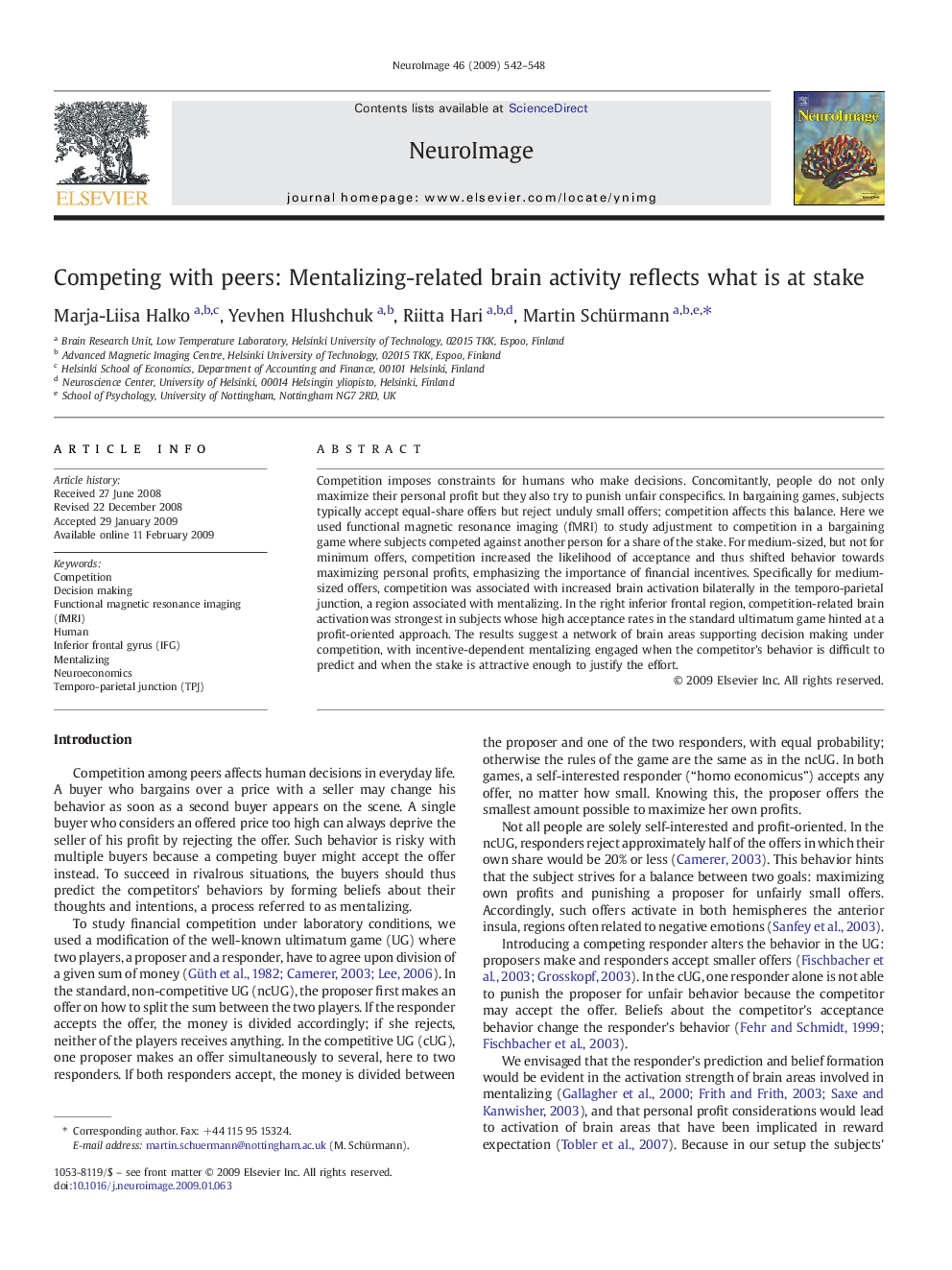| Article ID | Journal | Published Year | Pages | File Type |
|---|---|---|---|---|
| 6038304 | NeuroImage | 2009 | 7 Pages |
Competition imposes constraints for humans who make decisions. Concomitantly, people do not only maximize their personal profit but they also try to punish unfair conspecifics. In bargaining games, subjects typically accept equal-share offers but reject unduly small offers; competition affects this balance. Here we used functional magnetic resonance imaging (fMRI) to study adjustment to competition in a bargaining game where subjects competed against another person for a share of the stake. For medium-sized, but not for minimum offers, competition increased the likelihood of acceptance and thus shifted behavior towards maximizing personal profits, emphasizing the importance of financial incentives. Specifically for medium-sized offers, competition was associated with increased brain activation bilaterally in the temporo-parietal junction, a region associated with mentalizing. In the right inferior frontal region, competition-related brain activation was strongest in subjects whose high acceptance rates in the standard ultimatum game hinted at a profit-oriented approach. The results suggest a network of brain areas supporting decision making under competition, with incentive-dependent mentalizing engaged when the competitor's behavior is difficult to predict and when the stake is attractive enough to justify the effort.
